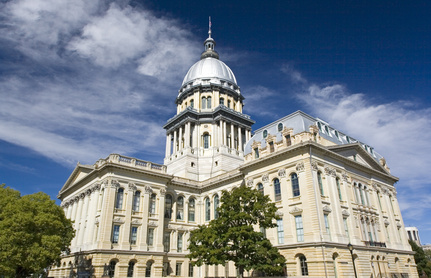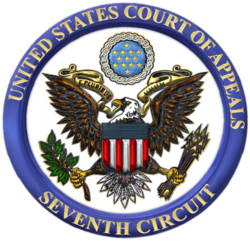The County Court of the Twelfth Judicial Circuit Court of Florida recently held that a debt buyer could not use the original creditor’s credit card statements to try to collect on the underlying debts, as the debt buyer failed to present evidence that it independently verified the accuracy of the credit card statements. A copy of the opinion in Midland Funding LLC v. Nole is available at: Link to Opinion. The plaintiff debt buyer presented the sworn testimony of a senior legal specialist and records custodian for the debt servicing entity affiliated with the plaintiff. The records custodian testified as…
Posts published in “Debt Collection”
A Massachusetts Superior Court recently held that reaching a debtor’s voicemail, but choosing to not leave a message, is a “communication” under the Massachusetts Debt Collection Regulations, 940 Code Mass. Regs. § 704(1)(f). A copy of the opinion in Watkins v. Glenn Associates, Inc. is available at: Link to Opinion. The plaintiff sued for injunctive relief and to recover damages from a creditor for alleged violations of the Massachusetts Debt Collection Regulations, 940 Code Mass. Regs. § 704 et seq., which states that it is an “unfair and deceptive act or practice for a creditor to…[i]nitiat[e] a communication with any debtor…
Today the Consumer Financial Protection Bureau released an outline of its proposals for rules under the federal Fair Debt Collection Practices Act. The FDCPA regulates the practices of debt collectors, primarily persons who collect consumer debt on behalf of others and sometimes persons who purchase defaulted consumer debts. The CFPB’s outline displays its intention to issue rules not only covering these third-party debt collectors and debt purchasers, but also to regulate the debt collection activities of original creditors themselves under the Bureau’s authority from the Dodd-Frank Act to issue regulations prohibiting unfair, deceptive, and abusive acts and practices. The outline…
The Court of Civil Appeals of Alabama recently rejected a debtor’s attempt to recast a creditor’s collection claims to make the claims subject to a shorter statute of limitations. In so ruling, the Court held that Alabama’s civil procedure rule as to motion for summary judgment affidavits is satisfied by testimony as to an affiant’s personal knowledge of the information contained in an affidavit. A copy of the opinion in Cook v. Midland Funding, LLC is available at: Link to Opinion. The debtor opened a credit card account with a bank in 1995. Years later, in 2009, the debtor failed to…
A judgment debtor’s lawsuit requesting the court declare a judgment as “void” is not subject to any limitations period, under a decision from Maryland’s Court of Special Appeals. However, claims arising from the “void” judgment may be subject to Maryland statutes of limitations according to the decision in Jason v. National Loan Recoveries, LLC, available here. No Limitations Period on Claim that an Unlicensed Debt Buyer’s Judgment is ‘Void’ National Loan Recoveries (“NLR”), a debt buyer, obtained a judgment against Jason on an unpaid delinquent credit card account. However, at the time NLR obtained the judgment, it was not licensed…
On Jan. 7, the Expired Debt Act (EDA) was introduced in the Rhode Island House of Representatives and referred to the House Committee on Judiciary. The bill was introduced by State Representatives Shekarchi, Solomon, Regunberg, McEntee, and Craven. Since 2007, Rhode Island has had its own Fair Debt Collection Practices Act (RIFDCPA) that is, for the most part, identical to its federal counterpart. The EDA, however, introduces new definitions and restrictions related to debt collection. The EDA defines a “collector” as “a person collecting or attempting to collect an alleged debt arising out of a consumer transaction.” The definition is…
The U.S. Court of Appeals for the Fourth Circuit recently held that a finance company properly cured a contractual interest rate provision in excess of the statutory cap, and was not liable under the Maryland Credit Grantor Closed End Credit Provisions (MCLEC). However, the Court also held that the defendant could be liable under the Maryland Consumer Debt Collections Act (MCDCA) if it falsely claimed to have taken legal actions against the debtor. A copy of the opinion in Askew v. HRFC, LLC is available at: Link to Opinion. In 2008, a customer entered into a retail installment sales contract…
On Jan. 29, 2016, Illinois Governor Bruce Rauner signed into law SB 1369 that provides welcomed corrections to the Illinois Collection Agency Act that was amended in 2015 by HB 3332. In a previous CFS blog, we described the proposed changes in SB 1369 that would rewind some of the unintended consequences wrought by HB 3332. The Illinois Legislature should be commended for its quick turnaround in implementing this fix, which became effective upon the Governor’s signature.
The United States District Court for the Western District of Missouri recently granted a debt collector’s motion for judgment on the pleadings, holding an internal account number displayed on the envelope of a demand letter did not violate the Fair Debt Collection Practices Act (FDCPA) because it did not reveal the plaintiff was a debtor. A copy of the opinion in McShann v. Northland Group, Inc. is available at: Link to Opinion. In March 2014, the debt collector sent a demand letter regarding a consumer debt owed by the plaintiff. The letter’s envelope had a window in which the plaintiff’s name,…
The U.S. Court of Appeals for the Seventh Circuit recently reversed a district court’s denial of class certification in a putative class action alleging that a debt collector violated the federal Fair Debt Collection Practices Act (FDCPA) by sending supposedly misleading letters to Illinois residents trying to collect time-barred debts. A copy of the opinion in Scott McMahon v. LVNV Funding, LLC is available at: Link to Opinion. The plaintiff alleged that the defendant debt collector violated the FDCPA because it sent “dunning letters containing language that would mislead an unsophisticated consumer into believing that the debt is legally enforceable” even…
The U.S. District Court for the District of New Jersey recently dismissed a debtor’s claims for violations of the federal Fair Debt Collection Practices Act (FDCPA) and the New Jersey Truth in Consumer Contract Warranty and Notice Act (TCCWNA), holding the debtor’s failure to schedule his lawsuit as an asset of his bankruptcy estate deprived him of standing to later assert the claims. A copy of the opinion in Lewis v. Portfolio Recovery Associates, LLC is available at: Link to Opinion. In March 2015, the debtor filed a lawsuit alleging the defendant sent him a letter in an attempt to collect a debt…
Debt collectors seeking to avoid liability under the bona fide error exception of the federal Fair Debt Collection Practices Act (FDCPA) will not be excused from liability if the conduct at issue was intentionally undertaken. That is the ruling from the Seventh Circuit Court of Appeals in Leeb v. Nationwide Credit Corporation. Mark Leeb received a telephone call and letter from Nationwide seeking payment for an unpaid medical debt. Leeb wrote Nationwide stating he did not owe the debt because it was payable by his health insurance. He also requested Nationwide provide him verification of the debt under section 1692g(b) of…











